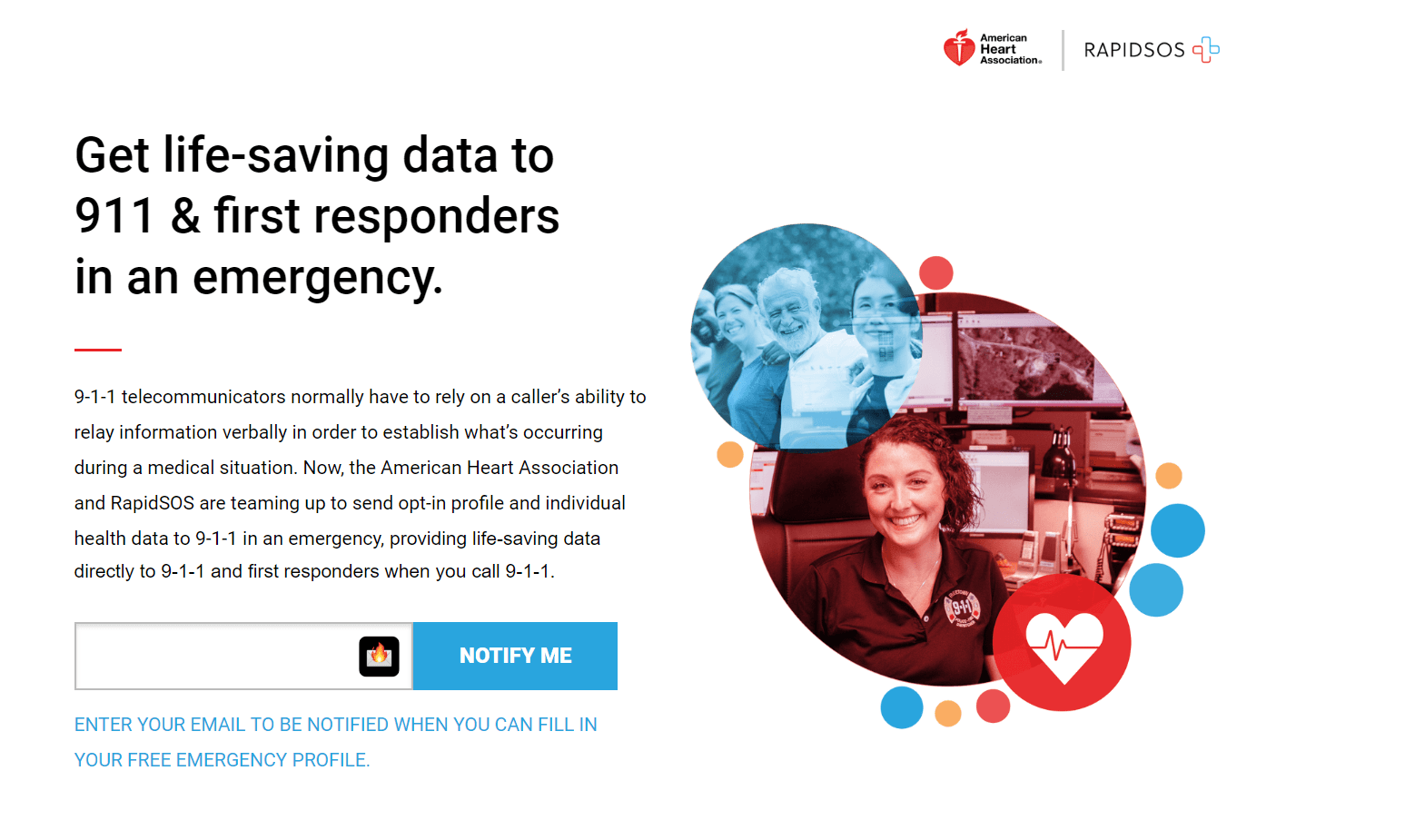
American Heart Association is teaming up with emergency technology company, RapidSOS, to promote a voluntary registry for citizens to share data with 911 and first responders. People can provide opt-in profile information and individual health data, personalizing care and positively transforming emergency outcomes.
Outdated 911 System
Public safety professionals are trained to respond as quickly as possible to medical emergencies, but our nation’s 9-1-1 system was built over 50 years ago for landlines phones, making it nearly impossible to digitally send any data to 9-1-1 and first responders. The result is that callers need to verbally relay personal and contextual information to the 9-1-1 telecommunicator in order to get appropriate care. During cardiac arrest, every minute that passes without CPR and defibrillation decreases the chances of survival by 7-10%.
Registry Solution Details
The joint solution with RapidSOS will provide patient medical and personal information directly to public safety personnel during a 9-1-1 call at no cost. This will enable a data-driven and situationally aware emergency response which can reduce the time to diagnosis and treatment. Examples of data transmitted will include information on medical history, allergies, medications, medical devices, and emergency contacts.
Individuals will be able to submit their selected information through a secure database for the exclusive access of authorized 9-1-1 agencies. As long as a 9-1-1 center has access to RapidSOS, they will be able to see the data, anywhere in the country.
Access for Any Public Safety Agency Nationwide
Public safety agencies can access supplemental life-saving information through RapidSOS Clearinghouse at no cost. The American Heart Association will join organizations including Apple, Google, the MedicAlert Foundation and Uber sharing emergency data through the RapidSOS platform.
When 9-1-1 receives a call from a number associated with information in the secure emergency database, the telecommunicator will quickly be able to view the member’s profile data.
Any public safety agency can get access to the information from the RapidSOS Portal, a secure web-based tool, or an integration with their existing software. Over 3,000 agencies serving over 250 million people currently have access to the data.
Why It Matters
“Seconds save lives during emergencies and providing responders with medical information for a patient can make all the difference in the outcome of an incident,” says Michael Martin, CEO of RapidSOS. “Legacy 9-1-1 infrastructure, however, does not connect first responders with the medical data they need to provide the best possible care. We are thrilled to work with the American Heart Association to make patient health data available to emergency medical professionals through modern emergency infrastructure.”
“RapidSOS and the American Heart Association are giving emergency professionals access to critical information to effectively respond to medical emergencies,” said Francesca Dominici, PhD, Co-Director of the Data Science Initiative at Harvard University. “This work will produce more efficient, better prepared medical response, saving lives.”
Individuals can sign up for early access to the registry here. Authorized agencies interested in gaining access can visit www.rapidsos.com/clearinghouse to learn more.
